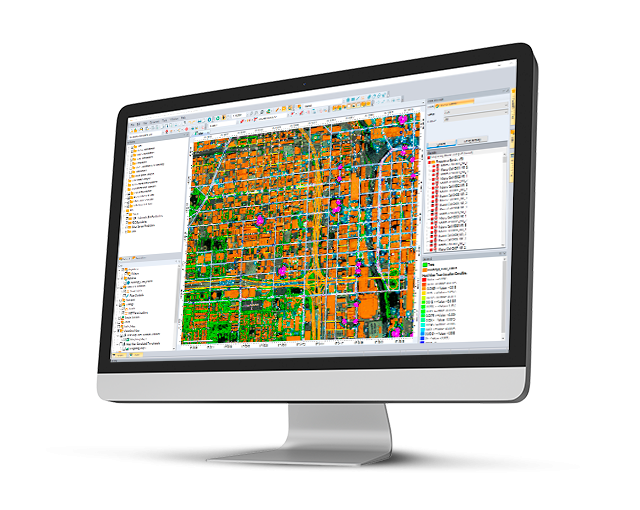Atoll GSM module provides a comprehensive and accurate modelling of 2G voice and data services.
Atoll supports integrated network planning for multi-RAT networks. It features a multi-technology network database, a unified traffic model, a combined Monte Carlo simulator, and a multi-RAT ACP (Automatic Cell Planning) module. Atoll provides operators with a comprehensive and evolutionary framework for planning and optimising multi-technology networks including small cells, integrated Wi-Fi, and IoT.

2G Network Modelling
- Support for multiple frequency bands
- Network layer (HCS - Hierarchical Cell Structure) modelling
- Support for dual-band cells
- Support for frequency hopping (baseband & synthesised) and DTX
- Modelling of AMR codecs, GPRS, EDGE, and EDGE Evolution
- Advanced service modelling
- Access to live network KPIs and UE/cell/MDT traces
2G Traffic Modelling
- Modelling of voice and data services
- Modelling of user equipment, user profiles, and traffic environments
- Multi-service raster and vector traffic demand maps from multiple sources including traffic data from live network measurements
2G Service Planning and Analysis
Advanced GSM/GPRS/EDGE simulator including power control and RRM
Generation of prediction plots, based on simulations or on cell load figures from the live network, including:
- Downlink and uplink coverage analyses
- HR/FR/EFR/AMR codec-based voice service areas
- GPRS/EDGE/EDGE Ev olution coding schemes and throughputs
- Interference analysis
- QoS analysis
Coverage plots combining predicted and measured values from live network KPIs and UE/cell/MDT traces
Neighbour Planning
- Manual and automatic neighbour planning and handover analysis
- Hybrid neighbour allocation process based on predictions and live network data
Network Dimensioning
- Traffic distribution among cell layers and traffic overflow modelling
- Cell dimensioning for mixed voice/data traffic and timeslot configurations
- Traffic analysis including calculation of KPIs such as packet delay, blocking rate, etc.
Interference Matrices
- Prediction-based and measurement-based interference matrices
- Import of interference matrices from the OSS using vendor-specific formats
- Quality thresholds by TRX type (e.g., BCCH, TCH)
- Open format allowing editing interference matrices using 3rd party applications
Multi-RAT Network Planning
Integrated planning and optimisation for GSM with 5G NR, LTE-A Pro, NB-IoT, and UMTS:
- Unified network databases with site and antenna sharing
- Unified multi-service traffic model
- Combined Monte Carlo simulator
- Simultaneous display and analysis of network layers
- Inter-technology handover modelling
- Inter-technology interference analysis
Automatic Frequency Planning - AFP (option)
- User-definable constraints and flexible cost function
- Allocation of frequency hopping parameters (HSN, MAIO, MAL)
- Combined automatic/interactive frequency planning
- Intelligent combination of interference matrices from various sources
- Intermodulation interference reduction
Automatic Cell Planning - ACP (option)
- Automatic optimisation of network coverage and capacity
- Site selection and activation for greenfield and densification scenarios
- Identification of critical network zones and high-traffic areas using live network KPIs and UE/cell/MDT traces
- Advanced radio coverage, quality, and capacity objectives
- Antenna selection and parameter optimization (height, azimuth & tilt)
Automatic Site Positioning - ASP (option)
- Automatic creation of new site locations according to surface-wise, traffic-oriented and population-based coverage objectives
- Site deployment in multiple zones (urban, suburban, rural, etc.), along roads and railways
- Intelligent implementation plan with the selection of the best sites to deploy

